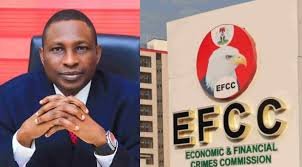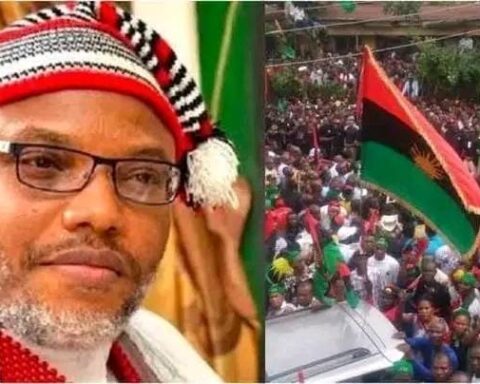In a bold move aimed at tightening the noose around corruption and illicit financial flows, the Economic and Financial Crimes Commission (EFCC) of Nigeria has formally proposed a bill to criminalize the possession of unexplained wealth. The proposed legislation, presented to the National Assembly under the working title “Proceeds of Unlawful Activities (Prevention) Bill 2025,” is poised to become one of the country’s most aggressive tools in the fight against financial crimes.
According to EFCC Chairman, Ola Olukoyede, the proposal stems from years of investigative frustrations where suspects, often public servants or politically exposed persons, possess assets and lifestyles that cannot be matched with their lawful income. Speaking during a press conference in Abuja, Olukoyede said, “It is no longer acceptable that individuals live flamboyantly without any traceable source of income while the country bleeds from poverty, unemployment, and underdevelopment.”
He noted that the current legal framework makes it difficult to prosecute such cases unless there is a direct link between the assets and a specific criminal activity—often a burden too heavy to prove in court without insider evidence or whistleblowers.
The proposed legislation seeks to introduce a reverse burden of proof. Under the new law, individuals found with assets or wealth far beyond their legitimate earnings would be required to explain the source. Failure to do so would constitute a criminal offense, punishable by confiscation of assets and possible imprisonment.
The bill also proposes the establishment of a Special Financial Intelligence Tribunal to fast-track hearings related to unexplained wealth, ensuring that cases are not trapped in the slow grind of the regular judicial system.
The move has sparked heated debates across the country. Civil society groups and anti-corruption advocates have largely welcomed the proposal, viewing it as a necessary step in curbing impunity and promoting accountability. “This is long overdue,” said Bolanle Adebayo, director of Integrity Watch Nigeria. “We cannot continue to allow people to own private jets on a civil servant’s salary and call it normal.”
However, critics warn of potential abuse. Legal experts and opposition lawmakers have raised concerns about the risk of weaponizing such a law against political opponents. “While the intent is commendable, the law must be watertight and respect fundamental human rights, especially the presumption of innocence,” said Senator Ibrahim Musa during a floor debate.
The EFCC’s proposal echoes similar laws in other countries. The United Kingdom’s “Unexplained Wealth Orders” (UWO), for instance, have enabled authorities to target suspicious assets held by foreign elites. Kenya, South Africa, and Australia also have laws that allow for asset forfeiture based on suspicion and lack of credible explanation.
The bill has passed first reading in the House of Representatives and is scheduled for public hearing later this month. The EFCC is urging citizens to participate in the hearing and support the law’s passage, insisting that it will be a game-changer in Nigeria’s anti-corruption landscape.
As the nation watches closely, the success or failure of this law may well define the future of accountability in Nigeria. Will it empower the EFCC to act decisively, or will it fall victim to political compromise and legal loopholes? Only time—and the resolve of lawmakers—will tell.



























